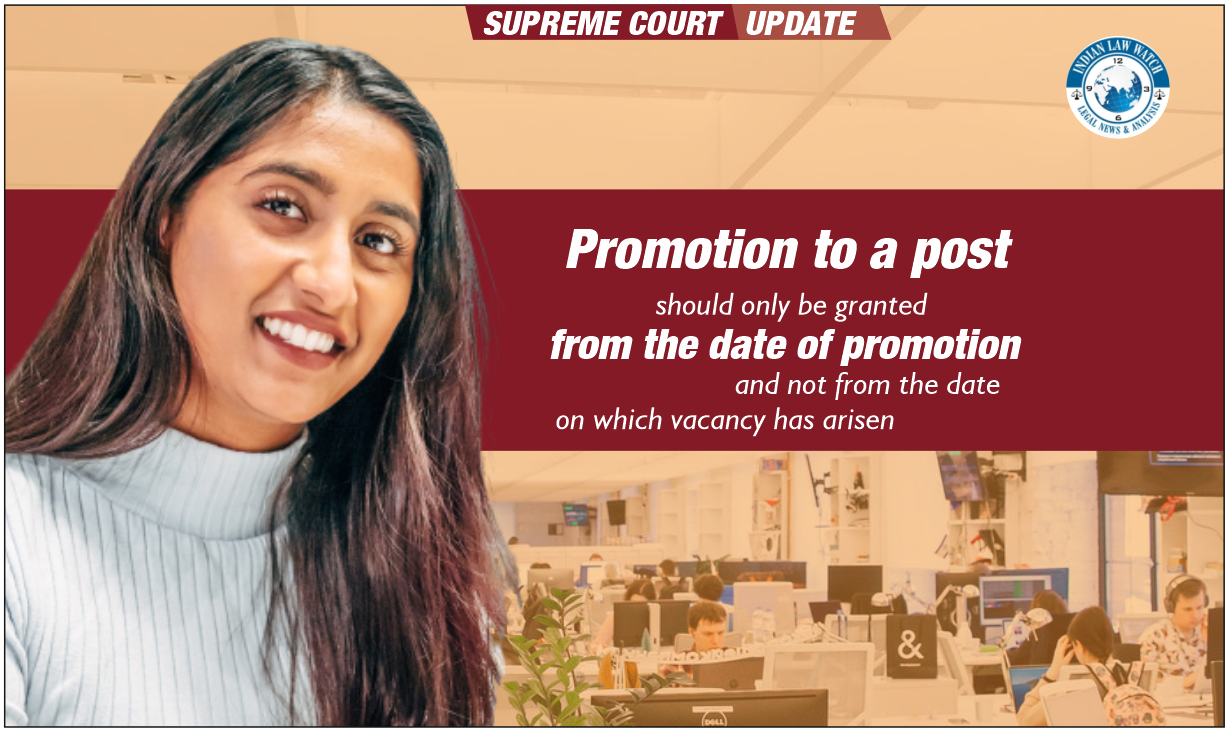
FACTS
The respondents in present Civil Appeals No.517 (“R1”) & 518 (“R2”) of 2017 are both holding the post of Junior Administrative Grade-II (JAG-II) officers. R1 retired in the said capacity voluntarily in the year 2010 and R2 was promoted on an ad hoc basis to Junior Administrative Grade-I (JAG-I) and regularized vide notification dated 17 April 2012 after undergoing a selection process against the vacancies in tune with Rule 4 of the National Capital Territory of Delhi, Andaman and Nicobar Islands, Lakshadweep, Daman and Diu and Dadra and Nagar Haveli (Civil Service) Rules, 2003. Union of India v. Manpreet Singh Poonam, CIVIL APPEAL NOS. 517-518 OF 2017; March 08, 2022
The applications were filed separately by the Respondents before the Central Administrative Tribunal (CAT). The applications were dismissed by the tribunal on the basis Rule 4 read with Rule 7 of the 2003 Rules would disentitle the relief being granted.
Rule 4 prescribes 10% as the maximum in the cadre of JAG-I of the total sanctioned strength of the posts in the service, which was later increased to 472. Rule 7 specifies that the vacancies arising in JAG-I shall only be filled by promotion from amongst the officers in the immediate respective lower grade with the minimum qualifying service as specified in Schedule III.
On writ, High Court held that R1 is entitled to relief in terms of Circular No. AB.14017/47/2011-EST (DR) issued by the Department of Personnel and Training (DoPT), which facilitates a retired officer who is otherwise eligible as on the due date to be considered for the benefit of “pay-upgradation”. In the case of R2, it was held that after keeping the officer without consideration for promotion for a long time, with the decision to grant promotion, there is no justification for denying it from October 1, 2009.
Hence, the present appeal.
The Apex Court noted while disapproving the views of the CAT and the High Court, that the concerned rules are clear and do not need any interpretation. Further, the court relied on Ajay Kumar Shukla v. Arvind Rai 2021, to state that “no officer has a vested right to a promotional post, which is restricted to that of consideration according to law”. On this point, the court also took note of Ajit Singh v. State of Punjab 1999 which states that if a person fulfils the eligibility criteria for promotion but still is not considered for promotion, then there will be a clear violation of their fundamental right.
For R1, it was noted that when an officer retires voluntarily, there is the cessation of jural relationship resorting to a “golden handshake” between the employer and employee. Such a former employee cannot seek to agitate his past, as well as future rights, if any, sans the prescription of rules including the enhanced pay scale. Hence, R1’s application was rightly not considered in the DPC in 2012 since he was no longer in service at the relevant point in time.
For R2, the court noted that he was given a promotion after the successful consideration by the DPC. However, he can neither on facts nor on law claim retrospective promotion, and that too from the year 2009 as the promotion cannot be granted retrospectively and extended to give benefit and seniority from the date of the notional vacancy, causing violence to Rule 4 and 7 of the 2003 Rules. The court concluded that the mere existence of vacancy per se will not create a right in favour of an employee for retrospective promotion when the vacancies in the promotional post are specifically prescribed under the rules, which also mandate the clearance through a selection process. The court relied on Union of India v. KK Vadhera, 1989 to state that the promotion to a post should only be granted from the date of promotion and not from the date on which vacancy has arisen.





